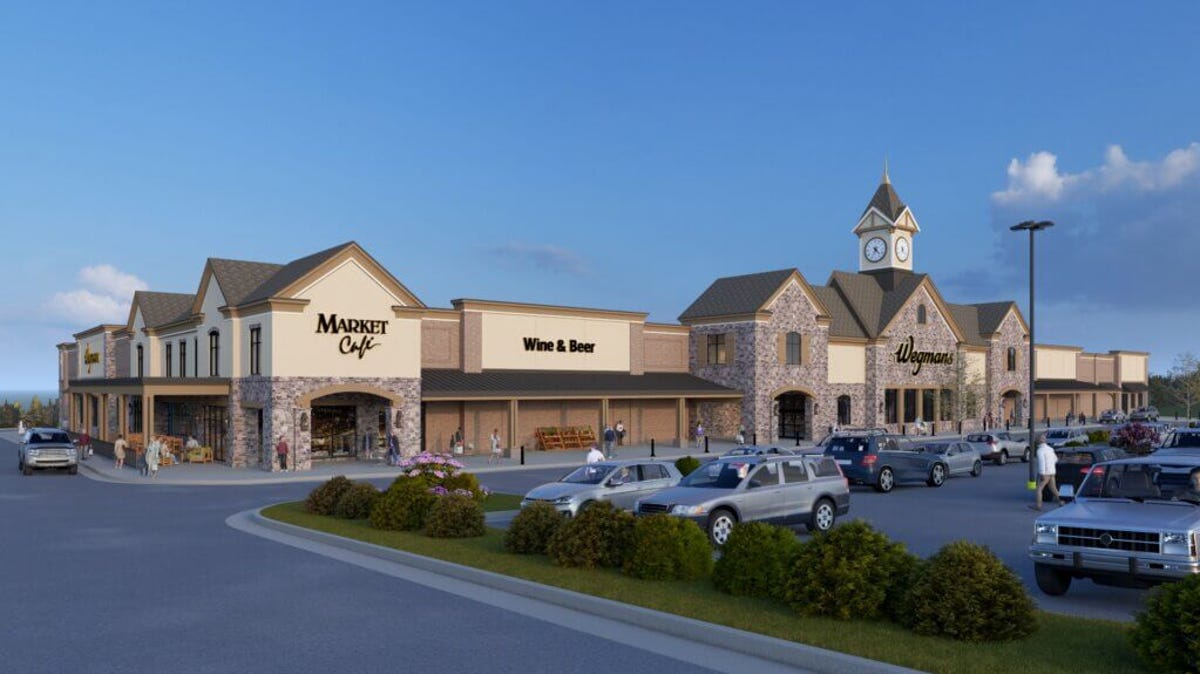Bucktail Medical Center, a tiny hospital in the sparsely populated Pennsylvania Wilds region, has launched a GoFundMe campaign to help keep its doors open.
The nonprofit, which has been losing between $100,000 and $150,000 a month, so far has found little resonance on the online fundraising platform since launching the campaign at the end of August. As of Saturday, the 16-bed hospital in South Renovo, in the north-central part of the state, has raised just $12,180 of its $1.5 million goal.
Hospital CEO Timothy Reeves said in an interview Thursday that in addition to the GoFundMe appeal, he has been in touch with many state and federal government officials to seek help for the hospital, which employs 85 people.
“We’re not just sitting here waiting for things to happen,” he said.
Bucktail is among the estimated 30% of rural hospitals across the country that are considered at risk.
If it closes, the roughly 3,100 full-time residents in its primary service area would have to travel significantly farther for emergency services or for inpatient care. The closest emergency room would be UPMC Lock Haven, 29 miles down a two-lane road along the West Branch of the Susquehanna River, according to Bucktail’s GoFundMe page. UPMC ended inpatient and surgical services there in April.
» READ MORE: Bucktail Medical Centers woes date back years.
The nearest closest hospital with inpatient services is Geisinger Jersey Shore, 40 miles from Bucktail.
Western Chester County residents encountered that sort of disruption when Tower Health closed Jennersville and Brandywine Hospitals in late 2021 and early 2022.
Difficult economics
Like all rural hospitals, Bucktail faces economic challenges. Rural hospitals serve relatively small populations and don’t have enough business to cover their fixed costs. Last year, state data show that Bucktail averaged about three emergency department visits a day, while paying a doctor, a registered nurse, and a licensed practical nurse to provide 24-hour coverage.
Even on a busy day, with seven or eight patients coming to the emergency department, “we’re still losing money,” Reeves said. The median number of emergency department visits at Pennsylvania hospitals last year was nearly 30,000, according to Pennsylvania Department of Health data.
» READ MORE: Bigger towns in northern Pennsylvania lose their hospitals, too.
Bucktail, which was founded in 1909 as Renovo Hospital and moved to its current location in 1979, has lots of company in jeopardy. A report by the nonprofit Center for Healthcare Quality & Payment Reform estimated that as of July more than 600 rural hospitals nationwide — more than 30% of the total — are at risk.
In Pennsylvania, 11 of 41 rural hospitals are at risk of closing over the next six or seven years, according to the Pittsburgh policy group’s report. Five of these could close within three years, it said. The group did not identify which hospitals.
Pennsylvania rural health experiment
State and federal authorities are looking at ways to make rural hospitals financially sustainable.
In cooperation with federal Medicare and Medicaid authorities and private health insurers, Pennsylvania in 2019 launched a pilot project to see if changing the way rural hospitals are paid could help them financially, improve the health of the populations they serve, and save insurers money.
Under what is called the Pennsylvania Rural Health Model, each of the 18 participating hospitals receives a predetermined amount of money each year to cover all inpatient and hospital-based outpatient services, regardless of the number of patients they see.
» READ MORE: Children’s Hospital of Philadelphia CEO collected a $5.6 million bonus in 2021.
An analysis of the program’s first three years found that Medicare spending per patient per month was lower in participating hospitals than the national rural average and that 80% of the participating hospitals had quality measures that exceeded national averages, according to the national law firm Manatt, Phelps & Phillips LLP.
But when the rural health program was conceived, in 2017, Bucktail was in a bankruptcy that lasted three years. “We did look at it back then, but because of our financial status they didn’t want to jeopardize the success of their program, understandably,” Reeves said.
Other financial troubles
In addition to the generally tough economic conditions for small rural hospitals, Bucktail has faced other financial setbacks, Reeves said. An employee retention tax credit worth $381,941 has been delayed indefinitely.
In August, the Pennsylvania Department of Human Services, which runs the state’s Medicaid health insurance program for low-income people, notified Bucktail that it had to return $255,467 in overpayments from the 2018-19 fiscal year.
Those setbacks ensured that he hospital, which had between $6 million and $7 million in revenue in the fiscal year that ended June 30, Reeves estimated, would remain in a tight spot financially, with another payroll due Friday.
“I believe that we’ll have that covered, but it’s really difficult to operate from payroll to payroll. That’s not taking care of a lot of our vendors, either, so those costs pile up,” he said.

/cloudfront-us-east-1.images.arcpublishing.com/pmn/IVPWJDRH5BHZTGHPHXDWFQI5PU.jpg)







/cdn.vox-cdn.com/uploads/chorus_asset/file/23382327/VRG_Illo_STK022_K_Radtke_Musk_Twitter_Upside_Down.jpg)












/cdn.vox-cdn.com/uploads/chorus_asset/file/25822586/STK169_ZUCKERBERG_MAGA_STKS491_CVIRGINIA_A.jpg)

/cdn.vox-cdn.com/uploads/chorus_asset/file/25821992/videoframe_720397.png)



